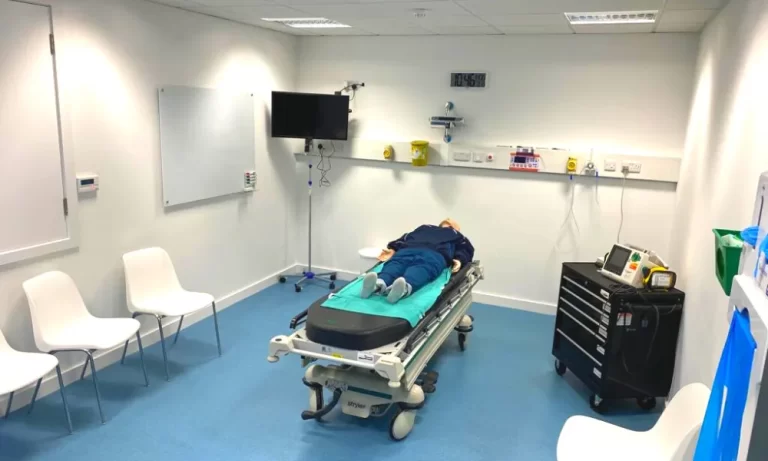
Knee pain is a prevalent concern impacting people across various age groups, including young athletes and senior citizens. The intensity of the pain can vary, from slight discomfort to debilitating pain that restricts movement and diminishes overall quality of life. Recognising the appropriate time to seek advice from a specialist is essential for obtaining prompt treatment and avoiding additional complications.
Discover the common causes of knee pain in Singapore and learn when you should seek professional intervention.
Common Causes of Knee Pain
Knee discomfort may arise from different factors. It is vital to determine the root cause to gain suitable treatment.
- Injury: Injuries associated with sports, including ligament tears, meniscus tears, and fractures, frequently lead to knee pain. It is essential to seek prompt care from a knee specialist to avert potential long-term complications.
- Osteoarthritis: This degenerative joint disease is prevalent among older adults. It leads to the gradual wear and tear of cartilage, causing chronic knee pain and stiffness. Consulting a knee pain doctor can help manage the symptoms and slow the progression of the disease.
- Rheumatoid Arthritis: Rheumatoid arthritis is an autoimmune condition that causes joint inflammation and can result in significant knee pain. Early diagnosis and treatment by an orthopaedic surgeon is necessary for managing this condition.
- Tendinitis: Inflammation of the tendons around the knee, often due to overuse or repetitive motion, can cause pain, especially during physical activity. A knee specialist can recommend treatments such as physical therapy or anti-inflammatory medications.
- Bursitis: This condition involves inflammation of the bursae, the small fluid-filled sacs cushioning the knee joint. Bursitis often results from repeated pressure on the knee or direct trauma.
When to Consult a Knee Specialist
It’s important to know when knee pain warrants a visit to a specialist. Delaying consultation can lead to worsening symptoms and potentially irreversible damage.
- Persistent Pain: If knee pain persists for a few weeks despite rest and home remedies, it’s time to see a knee pain doctor in Singapore. Persistent pain could indicate an adverse underlying condition that requires professional evaluation.
- Swelling and Redness: Swelling, warmth, and redness around the knee joint are signs of inflammation or infection. These symptoms should not be ignored and warrant a prompt consultation with a knee specialist.
- Difficulty Bearing Weight: You should seek medical advice if you find it difficult to bear weight on your knee or experience instability. This experience could be a sign of ligament damage or a critical joint issue that requires intervention.
- Limited Range of Motion: A reduced ability to fully bend or straighten the knee is a red flag. Consulting with an orthopaedic surgeon can help restore mobility through appropriate treatment.
- Knee Deformity: Visible deformities such as bowing or misalignment of the knee joint should be evaluated by a specialist. These deformities could indicate a severe injury or a condition like osteoarthritis that needs prompt attention.
ALSO READ: Preventing Common Sports Injuries: Tips From an Orthopaedic Surgeon
What to Expect During a Consultation
When you visit a knee specialist in Singapore, the consultation typically involves an evaluation to determine the cause of your knee pain.
- Medical History: The specialist will review your medical history, including any previous injuries, surgeries, or existing medical conditions that could contribute to knee pain.
- Physical Examination: A physical examination of the knee is conducted to assess pain, swelling, and range of motion. The specialist may also check for signs of instability or misalignment.
- Imaging Tests: Depending on the initial assessment, the specialist may recommend imaging tests such as X-rays, MRI, or CT scans to get a proper view of the knee joint. These tests help diagnose fractures, ligament tears, or degenerative diseases.
- Treatment Plan: Based on the diagnosis, the knee pain doctor will develop a treatment plan tailored to your needs. This plan may include medications, physical therapy, lifestyle modifications, or surgical intervention if necessary.
Treatment Options
The treatment for knee pain varies depending on the underlying cause. Here are some typical options:
- Medications: Non-steroidal anti-inflammatory drugs (NSAIDs) are often prescribed to reduce pain and inflammation. In instances of rheumatoid arthritis, it may be essential to use disease-modifying antirheumatic drugs (DMARDs).
- Physical Therapy: Physical therapy is a core component of knee pain management. It helps strengthen the muscles around the knee, enhance flexibility, and reduce pain. A knee specialist may recommend specific exercises tailored to your condition.
- Injections: Corticosteroid injections may offer short-term alleviation of inflammation and discomfort. Hyaluronic acid injections, which lubricate the knee joint, may also be considered for patients with osteoarthritis.
- Surgery: When conservative treatments prove ineffective, it may become essential to consider surgical intervention. An orthopaedic surgeon can perform procedures such as arthroscopy, partial knee replacement, or total knee replacement, depending on the severity of the condition.
Conclusion
Knee pain is a serious matter that warrants attention. Timely consultation with a knee specialist or an orthopaedic surgeon in Mount Elizabeth can avert additional complications and facilitate sufficient treatment. Regardless of whether you are suffering from a sports-related injury, arthritis, or another ailment, the knowledge and skills of a knee pain physician are essential for alleviating your discomfort and enhancing your quality of life. Should you encounter any of the aforementioned symptoms, it is tactful to seek professional assistance promptly.
Visit Dr Bryan Tan to start your journey toward pain-free living!







